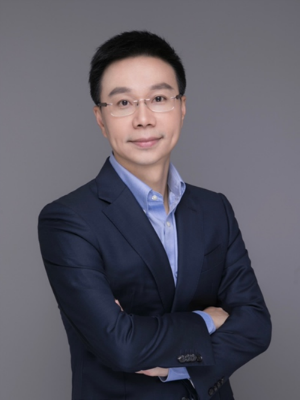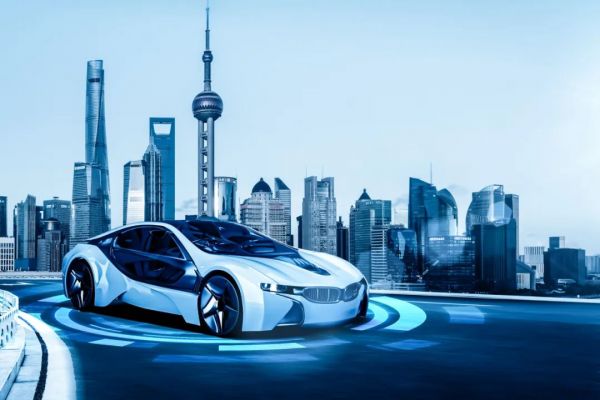微软作为全球数据中心的领军企业之一,其在能源管理和技术创新方面一直走在行业前列。
近年来,微软在其数据中心中采用锂电池技术,这一转变标志着清洁、节能、绿色、环保的理念在全球范围内的推广和实践。
铅酸电池+ UPS的组合在过去虽然为数据中心提供了稳定的电力保障,但随着算力需求的提升,其能量密度、寿命、维护成本和环境影响等劣势亦日益凸显。
铅酸电池已被视为过时的技术。
注:位于都柏林的 Microsoft 数据中心采用锂电技术已经在帮助公用事业公司避免燃烧化石燃料发电而排放二氧化碳和其他温室气体
海外科技巨头为何高度重视数据中心能效优化以及对环境的影响。
And this enormous consumption of energy means data centres are enormous emitters of greenhouse gases. Indeed, according to some analyses, global emissions from cloud computing range from 2.5 per cent to 3.7 per cent of all global greenhouse gas emissions, thereby exceeding emissions from commercial flights (which amount to around 2.4 per cent).
问题实质在于:数据中心消耗了大量的能源,这种巨大的能源消耗意味着数据中心是温室气体的巨大排放者。事实上,根据一些分析,云计算的全球排放量占全球温室气体排放量的 2.5% 至 3.7%,从而超过了商业航班的排放量(约 2.4%)。
As a result, Battery storage materials is now becoming a major priority for the data centre industry and the sustainability of the energy storage systems that are used by the sector is becoming a key consideration.
因此,电池存储材料现在正成为数据中心行业的主要优先事项,该行业使用的储能系统的可持续性正在成为一个关键考虑因素。
battery storage technology company zincFive said that the data centre industry is
"evolving rapidly with unprecedented speed and innovation,with battery storage
solutions emerging as a key focus".The report,which was based on a survey of more
than 100 data centre industry professionals, showed that 44 per cent of respondents
said that "sustainability targets/mandates were driving the changes respondents
considered for their energy storage technology".
根据一份报告显示,对 100 多名数据中心行业专业人士的调查,44%的受访者表示“可持续发展目标/要求正在推动受访者考虑对数据中心储能技术进行变革”。
事实上,早在2015年,海外发达国家的数据中心企业就致力于通过采用高效能源管理和清洁能源技术,来减少对环境的影响。
In the past decade, the pace of technological innovation in data centers in Europe, America, and Australia has accelerated, with one significant change being the gradual replacement of traditional lead-acid batteries with lithium batteries. Particularly in Australia, this trend has been quite pronounced.
在过去的十年间,欧美及澳大利亚的数据中心技术革新步伐加快,其中一项重要的变革便是锂电池逐渐取代了传统的铅酸电池。特别是在澳大利亚,这一趋势表现得尤为明显。
About five years ago, data centers in Australia almost completely ceased purchasing lead-acid batteries, instead universally adopting more advanced, efficient, and environmentally friendly lithium batteries as their backup power solution.
大约五年前,澳大利亚的数据中心几乎全面停止了对铅酸电池的采购,转而普遍采用更为先进、高效且环保的锂电池作为备用电源解决方案。
海外数据中心运营商和客户对能效、可靠性、灵活性和环境影响有更高的要求,因此更倾向于采用锂电这样的最新技术,他们认为接受新技术并加以应用是一件理所当然的事情。
Banks of lithium-ion batteries at a Microsoft datacenter in Dublin will be a part of the solution to this problem later this year.
These batteries, which typically provide backup power for the datacenter in case of emergency, have been certified, tested and approved for connection to the grid in a way that helps grid operators provide uninterrupted service when demand exceeds the supply generated elsewhere on the grid by wind, solar and other sources.
Providing this grid service “is a way for us to unlock the value of the datacenter,” said Nur Bernhardt, a senior program manager for energy at Microsoft.
位于都柏林的 Microsoft 数据中心的锂离子电池组通常在紧急情况下为数据中心提供备用电源,而这些锂电池产品已经过认证、测试和批准。
虽然锂离子电池的初始成本高于铅酸电池,但由于其更长的使用寿命、更低的维护成本和更高的能效,长期来看具有更好的总体拥有成本(TCO)。
If grid-interactive UPS systems replace the grid services currently provided by fossil fuel power plants in Ireland and Northern Ireland, about two million metric tons of carbon dioxide emissions could be avoided in 2025, according to Baringa, an energy advisory firm that Microsoft commissioned to analyze the potential impact of the technology.
“This is definitely moving the dial on emissions at a national level,” said Mark Turner, a partner in Baringa’s energy practice who helped perform the analysis.
Two million metric tons of carbon dioxide emissions is about one-fifth of the total emissions expected across the island of Ireland from the power sector in 2025, he explained.
What’s more, by relying on grid-interactive UPS technology for grid services, end consumers across Ireland would save tens of millions of dollars on fuel and other costs required to maintain the spinning reserve at coal and natural gas fired power plants.
Microsoft负责人表示,如果Microsoft 都柏林数据中心使用锂电技术为当地提供服务能力,到 2025 年可以避免约 200 万吨的二氧化碳排放。
The main purpose of the UPS system is to provide power conditioning for the servers. The UPS system is always on, providing protection to the servers. In 2015, Microsoft started to explore the potential to leverage these assets.
在2015 年,Microsoft 开始探索利用锂电创新技术的潜力(技术积累时间更早)为数据中心服务器提供保护,并持续至今。
微软等国际巨头采用锂电池,不仅是为了提升自身数据中心的运行效率,更是为了响应全球气候变化,推动绿色低碳发展。


